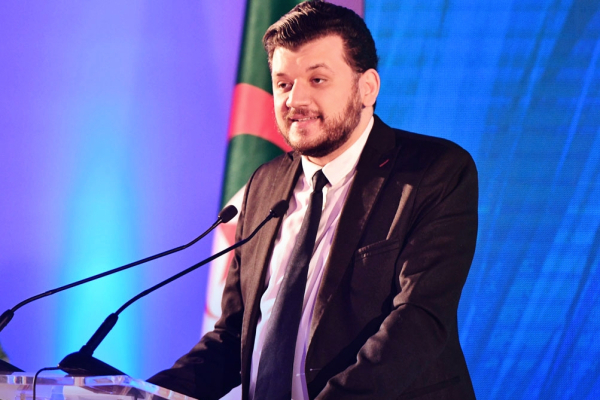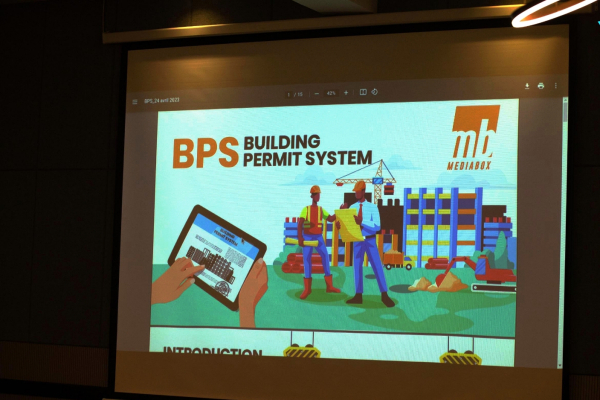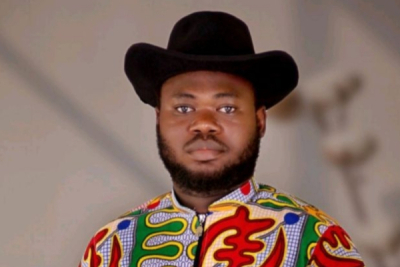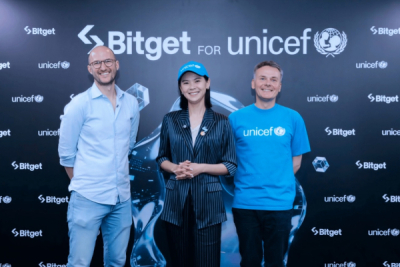According to the U.S. think tank Brookings, 230 million jobs in Sub-Saharan Africa will require digital skills by 2030. The continent has the potential to become a talent hub—but this will demand substantial investment in training and skills development.
Algeria's Minister of Vocational Training and Education, Yacine El Mahdi Oualid (photo), announced on Tuesday, June 17, the gradual rollout of 40 new digital specialties starting next academic year. The announcement came during a national meeting focused on new professions in the field of information technology.
These new programs will be implemented across various institutes and centers of excellence nationwide. The goal is to modernize vocational training and better align it with the real needs of the Algerian economy, especially in high-growth technology sectors. This reform also aims to improve the employability of graduates by equipping them with in-demand skills.
This initiative is part of a broader national digital transformation strategy. The recently adopted National Digital Transformation Strategy (SNTN) aims to train 500,000 ICT specialists while reducing the brain drain of skilled professionals abroad by 40%. This proactive policy is designed to support the diversification of an economy still heavily reliant on hydrocarbons by building a robust local pool of digital talent.
On the sidelines of the event, several cooperation agreements were signed. A notable partnership was established between the Ministry and the National Insurance Company (SAA) to develop ongoing training and apprenticeship mechanisms. Additionally, two agreements were signed with Mobilis and online training provider Beeform Academy, strengthening collaboration among the public sector, businesses, and private training providers.
Through this reform, authorities aim to improve youth employment, strengthen the national digital ecosystem, and cultivate a talent base to support Algeria’s technological ambitions. Ultimately, these efforts could position Algeria as a regional hub for digital skills, while meeting the domestic demand for qualified ICT jobs.
By Samira Njoya,
Editing by Sèna D. B. de Sodji
Burundian authorities are stepping up efforts to develop ICT and accelerate digital transformation. This momentum now extends to all sectors, including land administration, which is firmly committed to digitizing its services.
Burundian company Mediabox announced on Tuesday, June 17, the launch of an Electronic Document and Records Management System (EDRMS) for the Directorate of Land Titles and National Cadastre (DTFCN). Funded by the World Bank, this digital system aims to enhance the internal management of land operations. It will facilitate document access, secure archiving, action traceability, and administrative transparency.
Unlike a public portal, the EDRMS is an exclusive tool for land administration agents. It allows for swift and structured file consultation while ensuring full traceability of all operations carried out by relevant services. The primary goal is to streamline internal processes, shorten processing times, and secure information related to land ownership.
The Mediabox-developed solution integrates with two other DTFCN platforms: the Building Permit System (BPS), which manages building permit applications and the issuance of initial land titles, and the Property Management System (PMS), which handles updates to existing titles, including transfers, corrections, and mortgages. Together, these tools create a comprehensive digital ecosystem, ensuring continuity and reliability throughout land operations, from initial request to post-issuance management.
This initiative addresses persistent challenges in Burundi’s land sector, such as bureaucratic delays, a lack of centralized archives, legal insecurity of land titles, and slow document issuance. The project aims to resolve these issues by equipping public officials with tools for more efficient and transparent work.
The initiative is part of the Digital Foundations Project (PAFEN), a World Bank-funded program with a $92 million allocation. PAFEN seeks to expand broadband access in rural areas, build digital skills, and promote the digitization of public services. Burundi ranked 183rd out of 193 countries in the United Nations’ 2024 E-Government Development Index (EGDI), underscoring the significant challenges ahead.
The project's success will hinge on strengthening internal digital infrastructure, training staff on new technological tools, fostering a digital culture within the administration, and ensuring the security of sensitive land-related data. Ongoing system maintenance and scalability will also be crucial to meet the growing demands of land administration in the long term.
By Samira Njoya,
Editing by Sèna D. B. de Sodji
He is committed to offering solutions tailored to local realities and to fostering the rise of startups capable of addressing the continent’s social, economic, and environmental challenges.
Delbert Kimbi, a Cameroonian mobile developer, founded and serves as CEO of DelTech Hub, a technology innovation space in Cameroon. The hub assists young people, project leaders, and startups in their entrepreneurial endeavors and champions access to digital tools.
Established in 2024, DelTech Hub provides co-working spaces, hands-on training, and workshops covering web development, design, artificial intelligence, cybersecurity, and technology project management. The hub also offers personalized support for project leaders, including mentoring, connections with experts, and access to an investor network.
DelTech Hub has implemented various programs to foster learning and entrepreneurship within Cameroon's tech sector. INiT MeetUps convenes innovators and entrepreneurs monthly, while Code for Change introduces young people to programming and digital solutions for social issues.
The latest Code for Change session ran from Saturday, May 31, to Sunday, June 1. In April 2025, Kimbi received the Youth Impact Award in the "Technology" category, recognized for his innovation hub's influence in Cameroon. To date, DelTech Hub has trained over 200 participants and organized more than 12 events.
Before becoming an entrepreneur, Kimbi worked as a front-end developer in 2024 for the Health Research Foundation in Cameroon. There, he helped develop Star Mum, an app designed to support pregnant women. From July 2024 to February 2025, he completed an internship as a full-stack developer at AfroVisioN Group, a software development company.
Melchior Koba
He champions innovation rooted in local realities and the promotion of African talent. He firmly believes that Africa has the right to create, share, and monetize its own stories on its own terms.
Robert Djabaku, a Togolese entrepreneur and software developer, co-founded and manages Thesymo, a digital platform designed to help African content creators monetize their work.
Djabaku created Thesymo in 2022 after his mother struggled to find a way to financially support a content creator. This experience highlighted a gap, prompting him to develop a local tool that allows fans to directly support creators through mobile money or bank card payments, ensuring fair compensation.
The platform serves artists, journalists, authors, videographers, and influencers, providing a space for them to publish content, generate income, and engage with their audience without intermediaries. Thesymo aims to foster digital autonomy in Africa and enhance creators' independence. "What we are building with Thesymo is an ecosystem of opportunities for Togolese and also African talents," Djabaku stated.
Djabaku also heads Thesymo Technologies, a company he founded in 2022. This firm assists businesses and individuals with website creation, online visibility development, and cybersecurity services.
Djabaku earned a bachelor's degree in computer programming from the Catholic University of West Africa in Togo in 2019. He began his career in 2020 as a web developer at R-Dev Consulting, an IT company in Togo. In 2021, he joined E-Media, an agency specializing in design and innovation in information and communication technologies, as a full-stack engineer.
By Melchior Koba,
Editing by Sèna D. B. de Sodji
Algerian authorities are mobilizing for blood donation campaigns. They have decided to turn to technology to implement an innovative system in order to better manage these activities.
Algeria's Ministry of Health has launched a new digital platform to facilitate blood donations nationwide. Accessible via the Ministry's official website, the tool aims to enhance coordination between donors and blood transfusion centers while centralizing data on national blood needs.
Specifically, the platform allows citizens to register as donors, receive real-time updates on blood drives, and locate the nearest donation centers. In turn, center administrators can better plan collection campaigns and update their stock levels based on identified needs. This digital system is part of a broader strategy to modernize Algeria's blood collection network.
The initiative comes amid a steady increase in demand for blood products. It follows the second edition of the "Bank of Life" operation, which Algerian Radio launched in October 2024. Concurrently, the National Association of Algerian Pharmacists began a blood donation awareness campaign in June 2025, utilizing pharmacies as information hubs.
In the first half of 2024, over 354,000 units of blood were collected from 256 blood transfusion centers across the country. This represents a 5.49% increase compared to the same period in 2023. By combining a digital approach with citizen engagement, authorities hope to sustain collection efforts throughout the year, moving beyond the typical peaks of solidarity seen during specific times.
By Adoni Conrad Quenum,
Editing by Feriol Bewa
Blockchain can offer new economic opportunities for young people. However, unequal access to digital skills remains a barrier for many youth, especially girls.
Bitget, a global cryptocurrency exchange, announced on Monday, June 16, a partnership with UNICEF Luxembourg. The initiative aims to train 300,000 young people in digital skills, including blockchain technology, by 2025. The program will target eight countries, including two in Africa: Morocco and South Africa.
Blockchain, a decentralized and secure digital ledger technology, enables transparent and tamper-proof data storage and transfer. While it underpins cryptocurrencies, its applications extend broadly to education, healthcare, and data management.
This three-year program will be a collaboration between Bitget Academy, the exchange's educational arm, and UNICEF’s Office of Innovation. Together, they will develop UNICEF's first interactive blockchain learning module. This module will combine online and in-person training, incorporating video games to enhance learning for both young people and educators.
The initiative specifically emphasizes empowering girls, as well as their parents and teachers, to reduce gender inequality in access to technology. It seeks to strengthen education in Science, Technology, Engineering, Arts, and Mathematics (STEAM), with the goal of reaching 1.1 million girls by 2027 through the UNICEF-led Game Changers coalition.
This project is part of the larger Game Changers coalition, which strives to close the gender gap in digital education. UNICEF reports that disparities in digital access cost young women in low- and middle-income countries up to $15 billion annually in lost economic opportunities.
By focusing on Morocco and South Africa, two nations committed to the digital transformation of their education systems, the initiative could significantly boost youth skills, particularly among girls. This effort aims to foster a new generation of digital professionals in Africa's rapidly expanding tech sector.
By Samira Njoya,
Editing by Sèna D. B. de Sodji
Smart Africa, YouthConnekt Africa, and 4Ds Metrics have launched the Youth Emerge Challenge, calling on young African innovators aged 18 to 35 to apply for a chance to gain continental recognition, expert mentorship, and a showcase opportunity at the Transform Africa Summit 2025.
Applications will be evaluated based on customer desirability—how well the solution addresses a real, validated need—technical feasibility, and business viability, with an emphasis on scalability and sustainability in the target market.
The initiative reinforces Smart Africa’s digital transformation agenda and YouthConnekt Africa’s mission to empower youth through innovation and entrepreneurship. The deadline to apply is June 20, 2025.
FastBox Delivery aims to become a lasting part of consumer habits in Gabon. Led by Malika Gadault Deacken, the service has emerged as a compelling alternative for ordering online and receiving deliveries in the country’s major cities.
FastBox Delivery is a digital solution developed by Gabonese startup Gogo Africa. It offers a mobile app for ordering and receiving products in Libreville and its surrounding areas.
The mobile app, available on Android, has been downloaded over a thousand times, according to Play Store data. Users can create an account, provide their personal information, and then quickly order groceries, beauty products, office supplies, or prepared meals with just a few clicks. Deliveries are made promptly to homes or offices at affordable rates.
This service helps busy urban consumers save time while providing local merchants with a new digital platform to expand their customer base. FastBox Delivery acts as an intermediary between local businesses and individual customers, managing logistics through its fleet of motorized couriers.
The startup also has a social mission: it creates jobs for young delivery workers and promotes economic inclusion by helping small businesses digitize. In a country where digital service adoption is still gradual, FastBox Delivery is establishing itself as an innovative force in the local e-commerce sector.
By Adoni Conrad Quenum,
Editing by Feriol Bewa
He designs technology projects in Kenya and across Africa, developing tools for video games, education, and community collaboration.
Max Musau (photo) is a Kenyan tech entrepreneur and founder of Jiwe Studios. He aims to transform Africa's video game industry by creating immersive game worlds inspired by African cultures and histories.
Established in 2013, Jiwe Studios develops and publishes original video games like USAWA, Usoni, and 1001 Nights in Zanzibar. These games immerse players in adventures that combine myths, contemporary issues, and technological innovation.
Beyond game production, the studio also provides a community platform that connects African creators and gamers. This initiative supports the growth of new talent and the distribution of local content. In March 2025, Jiwe Studios launched the Jiwe Game Jams, a year-long series of events designed to boost game development in Kenya and across Africa.
In addition, Musau leads programs at the Africa Creative Coding and Learning Foundation, which he founded in 2018 to promote creative learning and education through play. He also acts as a strategic advisor at Re-imagining New Communities (RNC), an initiative that unites diverse communities for peacebuilding, cultural exchange, and dialogue.
Musau earned a bachelor’s degree in Information Systems Technology in 2013 from the United States International University, Africa. He then completed a master’s degree in Social and Sustainable Entrepreneurship at Colorado State University in 2015.
Before becoming an entrepreneur, Musau started his career in 2014 as an ICT solutions developer at Cyberworks Security, a Kenyan firm. The next year, he became chief technologist and coordinator of his university’s innovation and incubation center.
In 2018, he joined Africa’s Talking, a startup studio, as studio lead. Simultaneously, he served as operations director at Decoded Africa, a software development company. From 2020 to 2024, he spearheaded gamification and platform initiatives for Kura Yako Sauti Yako!, a civic awareness campaign that encouraged Kenyans to understand their rights and responsibilities in shaping the nation’s future.
By Melchior Koba,
Editing by Sèna D. B. de Sodji
He created a platform aimed at enhancing healthcare access in Zambia. This tool simplifies the process of finding pharmacies, hospitals, and other medical facilities by listing their locations.
Zanga Musakuzi (photo) is a Zambian pharmacist and entrepreneur. He is also the founder and CEO of Medsearch Zambia, a digital health startup aimed at simplifying and improving access to medical information.
Established in 2018, Medsearch Zambia's digital platform provides users with current and relevant information, streamlining the search for healthcare services. The platform features listings for clinics, hospitals, pharmacies, and laboratories, alongside medical research articles. It also allows users to geolocate nearby medical facilities.
"Access to quality healthcare is not a privilege, but a fundamental human right that every Zambian deserves," the startup stated in 2023. "We are committed to providing a platform that connects Zambians to healthcare providers in their communities. By promoting equal access to healthcare, we can ensure that every Zambian can live a healthy and fulfilling life."
Musakuzi's academic background includes a 2011 pharmacy diploma from Evelyn Hone College and a bachelor's degree in pharmacy obtained in 2017 from Lusaka Apex Medical University. An independent pharmacy consultant, he brings approximately 15 years of experience to the field.
His professional career began in 2009 as manager of Luanshya Chemist pharmacy. In 2011, he became a pharmacy technologist at the Lusaka District Health Office. He then worked as a pharmacist at Netcare Pharmacy starting in 2016. His experience also includes roles at Levy Mwanawasa University Teaching Hospital from 2017 to 2020 and Kafue General Hospital from 2020 to 2022.
By Melchior Koba,
Editing by Sèna D. B. de Sodji
More...
According to authorities, digital transformation is a key driver of Liberia’s socioeconomic development. It spans several areas of public governance, including tax administration.
The Liberia Revenue Authority (LRA) is intensifying its digital transformation strategy to modernize the nation's tax administration. Last week, the agency completed a thorough review of its Domestic Tax Department's standard operating procedures (SOPs) to align them with current operational realities, particularly in light of technological advancements. This review is a key component of a broader national initiative to digitize tax processes.
"We are moving toward automation. Our processes and SOPs must align accordingly. It is critical that we invest more in IT to reduce waste and eliminate redundant processes, including manual auditing. Countries like Zambia are already reaping the benefits of digitization, and we must follow suit,” said James Dorbor Jallah, Commissioner General of the LRA.
In May, the LRA introduced a new intelligent revenue monitoring system, developed by international tech firm N-Soft, designed to boost transparency and efficiency in tax collection. The same month, the LRA also expanded its partnership with the United Nations Development Programme (UNDP), focusing on three strategic areas: domestic resource mobilization, digital transformation, and institutional capacity building. Additionally, the Automated Performance Management System (APMS), introduced in September 2024, is slated for live operation in 2025.
Central to this transformation is the Liberia Integrated Tax System (LITAS), an integrated digital platform that streamlines tax management. LITAS offers a range of services, including online payments via bank transfer or Visa card, digital tools for tax calculation and verification, and the issuance of tax identification numbers and compliance certificates.
This digital push aligns with recommendations from the Organisation for Economic Co-operation and Development (OECD), which emphasizes that the primary goal of digital tax administration is to simplify and reduce the cost of tax compliance. The OECD highlights, "If paying taxes is burdensome, it results in higher time and financial costs for individuals and businesses. When scaled across the economy, these inefficiencies can represent significant losses in both direct costs and productivity."
Despite these advancements, Liberia's digital tax infrastructure remains under development. To ensure its effectiveness, several crucial prerequisites must be addressed: reliable internet access, appropriate digital equipment, a stable electricity supply, and comprehensive training for tax officials to develop the necessary digital skills for optimal system utilization.
By Isaac K. Kassouwi,
Editing by Sèna D. B. de Sodji
The Information Technology Industry Development Agency (ITIDA) has launched an expanded Summer Training Program in collaboration with the National Telecommunication Institute (NTI) and Systel, distributor of Motorola Solutions in Egypt. The initiative aims to train 10,000 university students in ICT and digital arts, reinforcing Egypt’s push to grow its tech talent pipeline.
The program targets first to third-year students in engineering, computer science, information systems, mass communication, fine and applied arts, and art education. Training is free of charge and students can choose from eight specialized tracks: cybersecurity, software development and UI/UX design, data analytics and AI, cloud computing, systems administration, electronics, digital arts, and digital marketing. Participants are also eligible for up to 70% discounts on international certification exams.
Morocco is emerging as a strategic destination for tech investments, thanks to its geographic position, growing digital infrastructure, and strong commitment to renewable energy. The country is increasingly attracting global digital players.
South Korean tech company Naver announced on Friday, June 13, its plans to establish a next-generation artificial intelligence (AI) data center in Morocco. This initiative is a collaborative effort with Nvidia, Nexus Core Systems, and investor Lloyds Capital. The facility, powered by renewable energy, is designed to achieve a 500-megawatt (MW) capacity to address the increasing demand for sovereign AI services across the Europe, Middle East, and Africa (EMEA) region.
Chae Sun-joo, CEO of Naver’s strategic business unit, stated, "This collaboration will be an important turning point for Naver's cloud and AI technologies to expand beyond Japan, Southeast Asia, and the Middle East to the European market."
The initial phase of construction is set to commence in the fourth quarter with the installation of a 40 MW supercomputer. This supercomputer will be equipped with Nvidia’s latest Blackwell (GB200) GPUs. The site is projected to expand to 500 MW, with its green power supply secured through an agreement with energy provider TAQA.
Naver's decision to select Morocco for this venture is based on several strategic advantages. These include its close proximity to Europe, merely 15 km across the Strait of Gibraltar, an extensive fiber-optic submarine cable network, and a competitive energy environment. Morocco aims to generate 52% of its electricity from renewable sources by 2030 and is home to significant green energy projects, such as the Noor solar complex in Ouarzazate, which boasts an installed capacity of 580 MW.
This initiative aligns with Morocco’s broader ambition to establish itself as a prominent digital hub in North Africa. In recent years, the country has attracted substantial investment in data centers and cloud infrastructure, including a separate 386 MW mega data center project located in Tetouan.
Beyond its technological implications, the upcoming data center is anticipated to create skilled jobs, facilitate knowledge transfer, enhance the local digital ecosystem, and bolster national digital sovereignty. It could also draw further international investments in cloud computing, AI, and telecommunications, thereby solidifying Morocco’s position as a strategic nexus in Africa’s digital economy.
Samira Njoya
By integrating these courts into a digital network, the project significantly enhances the judiciary’s capacity to deliver timely and efficient legal services, particularly in remote and previously disconnected regions.
A partnership between the Communications Authority of Kenya (CA) and the Judiciary of Kenya has successfully connected 42 law courts to high-speed internet through a Local Area Network (LAN), paving the way for virtual court hearings and improved access to justice for over 6.5 million Kenyans across 28 counties, the CA announced on June 15.
The initiative, implemented at a cost of KSh. 250 million is funded through the Universal Service Fund (USF)—a national program designed to promote equitable access to ICT services in underserved areas.
The deployment of LAN—a system that securely links computers and digital devices within court premises—allows courts to share data instantly, manage cases electronically, and hold virtual hearings with ease. Through this network, courts can now conduct bail applications, plea taking, and even full trials via video conferencing, making judicial processes faster, more efficient, and accessible to more citizens than ever before.
This initiative is part of the Judiciary’s broader Digital Transformation Agenda, which aims to reduce the justice gap by leveraging technology to improve transparency, efficiency, and accountability. By replacing manual systems with real-time digital communication and document sharing, the network enables courts to operate with greater speed and integrity, key issues in a justice system long burdened by backlogs and accessibility challenges.
The move is set to significantly enhance judicial efficiency in Kenya by helping to clear pending cases. The State of the Judiciary and the Administration of Justice Report had 635,262 pending cases for the FY 2023/24. By enabling virtual court proceedings, the project brings judicial services closer to over 6.5 million people, significantly reducing travel time, cost, and logistical barriers to justice.
The initiative supports Kenya’s broader ambitions to modernize public services, reduce regional disparities, and leverage technology to strengthen governance and the rule of law. It also reflects the Judiciary’s ongoing efforts to embrace innovation in line with the Judiciary’s Digital Transformation Agenda and the Kenya Vision 2030 development blueprint.
Hikmatu Bilali















